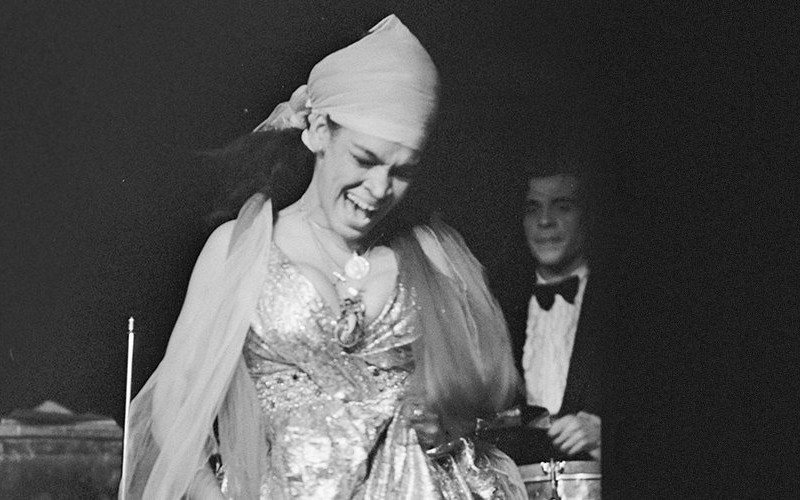Latinas Silvia Foster-Frau and Arelis Hernández Win 2024 Pulitzer Prize in Journalism
These Latina Pulitzer Prize winners have brought the stark horrors of gun violence into sharp focus, emphasizing the critical demand for change.

Silvia Foster-Frau and Arelis Hernández (both of Puerto Rican descent) received the 2024 Pulitzer Prize in the National Reporting category in a groundbreaking win for Latinas in journalism. They earned this honor for their, as the Pulitzer Board put it, “sobering examination of the AR-15 semi-automatic rifle, which forced readers to reckon with the horrors wrought by the weapon often used for mass shootings in America.”
The announcement of this Pulitzer Prize win not only celebrates the outstanding achievements of Foster-Frau and Hernández but also highlights the invaluable contributions Latinas can make when given the opportunity to succeed. Not only in journalism and literature but also in many other fields.
Foster-Frau and Hernández are not the only Latino names on the list of 2024 Pulitzer Prize winners. There’s also Brandon Som in the Poetry category for his work “Tripas: Poems,” Cristina Rivera Garza in the Memoir or Autobiography category for her book “Liliana’s Invincible Summer: A Sister’s Search for Justice,” and Médar de la Cruz in the Illustrated Reporting and Commentary category for his work “The Diary of a Rikers Island Library Worker,” published in The New Yorker.
Foster-Frau and Hernández: Two Journalism Powerhouses
Silvia Foster-Frau and Arelis Hernández have established themselves as forces to be reckoned with in the journalism space. They both bring extensive experience to the table, as well as strong voices shaped by their unique trajectories. Foster-Frau‘s journalism journey is defined by deep dives into issues of multiculturalism and demographic changes in the United States.
Beginning her career at the San Antonio Express-News, she laid a solid foundation for her impactful reporting on immigration and border affairs. Her transition to the Washington Post in 2021 further solidified her position as a leading voice on these issues. She has won many accolades throughout her career, including the NAHJ Elaine Rivera Civil Rights and Social Justice Award in 2022. Her work mainly focuses on how local, state, and federal governments serve the population and on examining the effects of the evolving racial, ethnic, and cultural demographics in the U.S.

Photo shared by silviafosterfrau on Instagram
Hernández‘s career started as a Metro Intern at Star News in 2007, covering police and writing enterprise stories. She joined the Washington Post in 2014, where she has covered a range of topics, including hurricanes and mass shootings. She even spent time in Venezuela and Puerto Rico, providing insights into politics, culture, and social movements. Hernández has also won many accolades for her work, including the Freedom Forum/ASNE Award for Distinguished Writing on Diversity and the second prize at the World Press Photo Award for Innovative Storytelling for her project “Sin Luz: Life without Power,” which was also nominated for an Emmy Award in 2018.
Together, Foster-Frau and Hernández use the power of journalism to shed light on important issues, challenge established perspectives, and try to drive meaningful change. It’s noteworthy that in a country with an estimated 64 million Latinos, only 12.6% of journalists are Latino, according to a Journalist Demographics and Statistics report conducted by Zippia in 2021. In 2023, a survey by the National Association of Hispanic Journalists (NAHJ) revealed that only 13% of reporters and 12% of editors are Latino.
In the Washington Post newsroom that lays claim to Pulitzer prize-winning journalism only 6.1% of employees are Latino, according to their 2023 Workforce Demographics report. While the percentage of Latino employees helping shape the news at the Washington Post has increased from 4% in 2018, 6.1% is still a tragic number considering that nearly a million Latinos live in the Washington Metro area alone. These drastically low numbers underscore how extreme Latino underrepresentation currently is in news journalism.
Foster-Frau and Hernández’s work is impressive, but their contributions to journalism serve double duty. They elevate and inform the public discourse on important societal issues and are also a source of inspiration for aspiring journalists, especially Latinas, who don’t have ample mentors and examples, yet want to dedicate their lives to amplifying information, ideas, and perspectives that can change society for the better.
A Closer Look at Their AR-15 Examination
Titled “Terror on Repeat,” Foster-Frau and Hernández’s award-winning report was published in the Washington Post in November 2023 as part of their “American Icon” series. The report provides an oral history and review of 11 mass shootings from 2012 to 2023, offering a detailed account of the devastation that AR-15s cause. Based on extensive research, interviews, and analysis, the report establishes AR-15s as the most-used weapon in mass killings and how its destructive effects are often kept from the public eye.
Luz Media connected with Foster-Frau via email for a couple of questions, and when asked why it was important for the team to make this report an oral history, she stated, “Our piece ‘Terror on repeat’ took a look at 11 mass shootings where a gunman was wielding an AR-15 style rifle over the span of 11 years. What we found was an overwhelming number of similarities between them — a repeating pattern — in the unraveling of the shootings, the accounts from survivors, and the scenes of utter devastation in the shootings’ wake. We decided to weave together the stories of all these shootings into one, using never-before-seen images from the scenes of mass shootings in America in the hopes of furthering the public’s understanding of the uniqueness of the AR-15 and the horrors that a growing number of Americans have experienced in recent years.”
Major props to @SilviaElenaFF and @arelisrhdz for showing the world how Latinas get it done. Our community is so lucky to have you two reporting on stories that matter to us https://t.co/dLkGbpx9GV
— Cris Ramón (@CramonMigration) May 6, 2024




